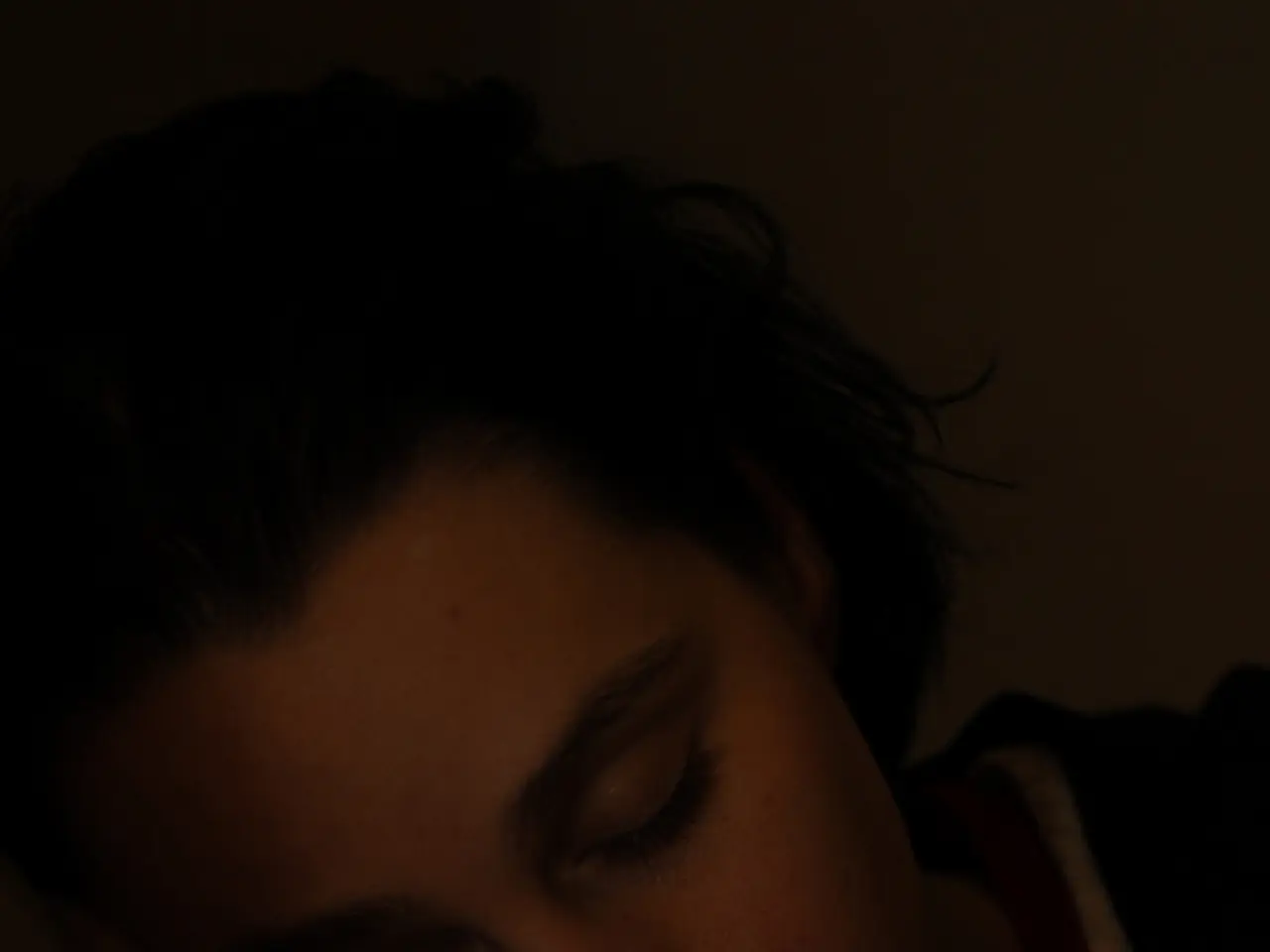Technology-Related Stress Disorder, Orthosomnia, Could Be Affecting Your Sleep Quality
Orthosomnia, a sleep disorder that stems from an unhealthy obsession with achieving perfect sleep, is on the rise. This condition, characterised by excessive reliance on sleep data from devices and apps, can negatively impact sleep quality and mental health.
People with orthosomnia often experience sleep anxiety, difficulty falling asleep, fatigue, irritability, and concentration problems, despite sometimes feeling rested. This is because they tend to ignore their body's natural cues and rely too much on the questionable data provided by sleep trackers.
The constant checking of sleep tracking data, especially first thing in the morning, is a common symptom of orthosomnia. This fixation on sleep metrics can lead to unnecessary stress about sleep quality, disrupting natural sleep patterns and increasing overall anxiety.
Moreover, light-emitting technology before bedtime, such as smartphones, tablets, and TVs, can disrupt the body’s natural circadian rhythm by suppressing melatonin production. Overuse of such tech before bed causes overstimulation, reducing sleep time and contributing to insomnia.
However, it's important to note that not all sleep technology is harmful. Some medical sleep devices (like CPAP machines for sleep apnea) and therapeutic gadgets can improve sleep quality when used appropriately.
To manage orthosomnia, it's recommended to reduce time spent on sleep trackers, especially if they are causing anxiety. Shifting the mindset from chasing perfect sleep to getting enough rest that feels good and supports overall health is crucial. Maintaining a consistent but flexible sleep routine and using calming rituals such as deep breathing or mindfulness before sleep time can also help.
Cognitive behaviour therapy for insomnia (CBT-I) is effective for issues that seem to be lingering, like high levels of anxiety, in managing orthosomnia. This therapy helps individuals understand and change thought patterns that lead to sleep problems.
In summary, orthosomnia is a condition that results from excessive trust in questionable sleep data, leading to sleep anxiety and poorer sleep quality. Reliance on sleep devices can override natural sleep cues and increase stress about sleep. Light-emitting technology before bedtime disrupts circadian rhythms, impairing sleep onset and maintenance. Balanced use of sleep technology with professional guidance can benefit those with sleep disorders, but obsessive use can be harmful. Focusing on how one feels instead of just what the data says can help manage orthosomnia.
- In the realm of fashion-and-beauty, adopting a 'less is more' approach to make-up and choosing natural, earthy color tones could potentially reduce anxiety related to appearance, promoting better mental health.
- Consuming a balanced diet rich in fresh food-and-drink, particularly those rich in magnesium like leafy greens and nuts, can help promote better sleep due to its potential role in improving sleep quality and reducing insomnia.
- Investing in rustic home-and-garden decor that incorporates natural materials and warm lighting can create a serene environment, ideal for sleep and relaxation, consequently reducing the stress associated with orthosomnia.
- Establishing a pet as a companion can offer emotional support and alleviate stress, making it easier to overcome sleep challenges caused by orthosomnia.
- Engaging in regular fitness-and-exercise during the day can help improve sleep quality at night, reducing insomnia and promoting better mental health overall.
- On vacation, consider disconnecting from technology, especially during the evening hours, to avoid disrupting your circadian rhythm and regain natural sleep patterns, combating orthosomnia.
- Prioritizing relaxation and hobbies that promote mental health, such as painting or playing a musical instrument, can provide an outlet for stress and improve sleep quality, aiding in the management of orthosomnia.
- Strengthening bonds with loved ones and working on maintaining healthy relationships can reduce stress levels and improve overall well-being, leading to better sleep and combating orthosomnia.
- Before bedtime, limiting screen time and replacing technology with activities like reading a physical book or practicing yoga can help create a calming atmosphere, promoting relaxation and reducing the effects of orthosomnia.






